iMore Verdict
Price: $100Bottom line: Forget your smartphone with the all-new Polaroid Now, which goes back to the basics while also offering new features.
Pros
- +
Easy to use
- +
Long battery life
- +
Great price
Cons
- -
Does fewer things than Polaroid OneStep+
- -
No digital integration
- -
Ever-expensive film
You can always trust iMore.
Launching in fresh, yet familiar colors, the Polaroid Now isn't just a beautiful instant camera. It also represents the return of one of the most iconic brands from the 20th century. Whether this is enough to make a long-term splash in the 2020s, especially with young people, isn't yet known. However, there are reasons to believe it's possible.
Polaroid returns
If you live long enough, you'll notice old things often become new again. So is the case with the Polaroid brand.
From the 1960s until the late 1980s, Polaroid was one of the most dominant corporations in the world. Then digital cameras arrived, slowing starving the company, which went bankrupt in 2001.
Fast-forward to 2008 when Dutch-based Impossible Project stepped forward and acquired most of the Polaroid assets, including its intellectual property. Impossible's primary tasks for many years was to produce the unique Polaroid film that the aging Polaroid camera required and also to fix those cameras for customers when necessary.
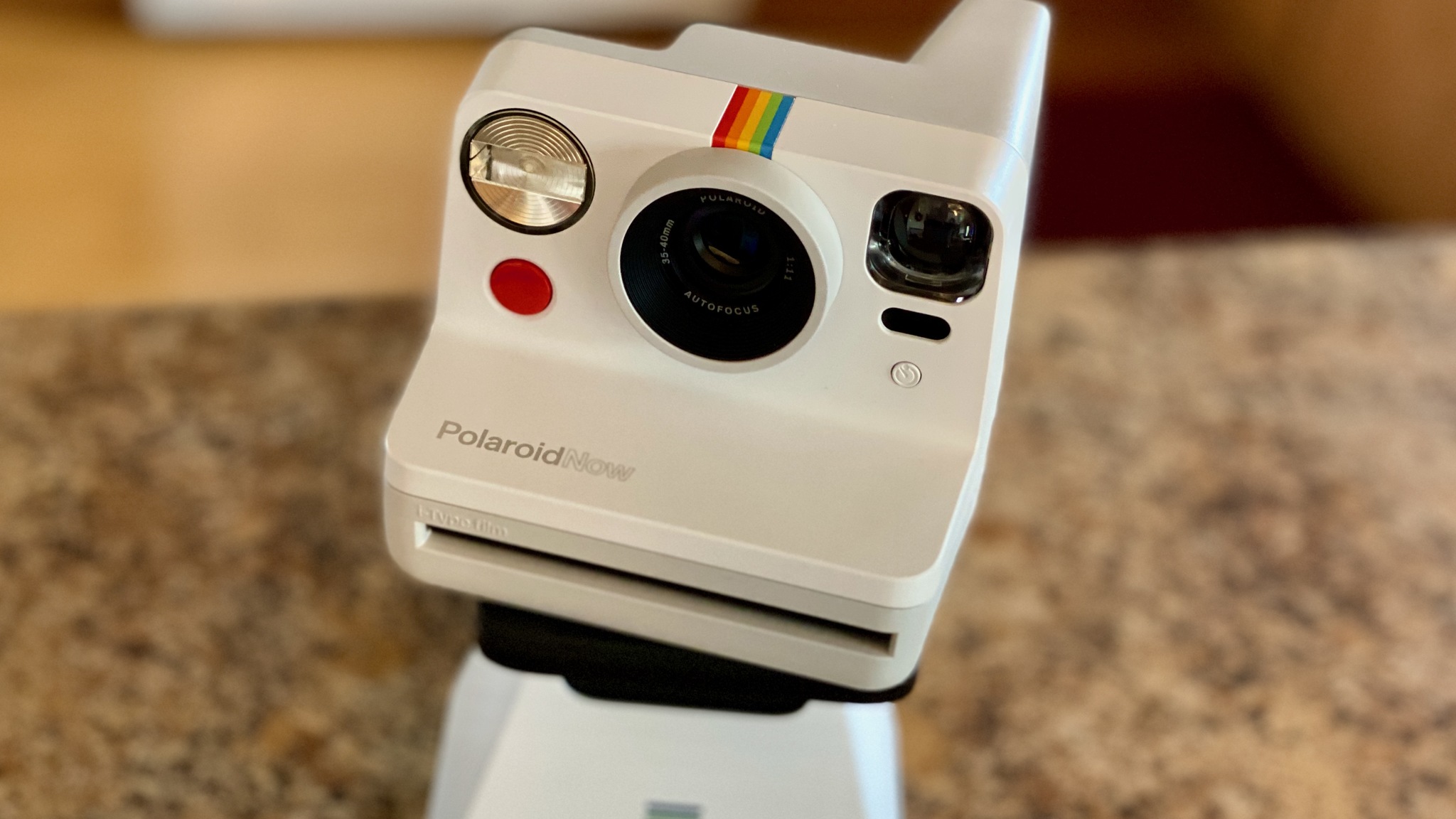
In 2017, Impossible became Polaroid Originals when it produced the first new Polaroid camera in many years. The well-received Polaroid One Step+ followed in 2019. Unlike the previous model, this one integrated with a Polaroid app, allowing you to perform interesting tasks like a double exposure, lighting painting, and noise trigger.
Earlier this week, another Polaroid camera launched. The Polaroid Now's arrival coincides with the rebranding (again) of the company. However, there's nothing impossible or original about the new name. It's simply called Polaroid.
Snap time
iMore offers spot-on advice and guidance from our team of experts, with decades of Apple device experience to lean on. Learn more with iMore!
What is the Polaroid Now?
With the Polaroid Now, the company took nearly everything that required an app on the OneStep+ and added it to the physical device. It also added an autofocus instant camera range, which goes a long way at making Polaroid snapshots better than before. Throw in an improved battery that Polaroid says has the power to shoot 15 packs of the instant film between charges, the Polaroid Now offers an exciting combination of old and new.
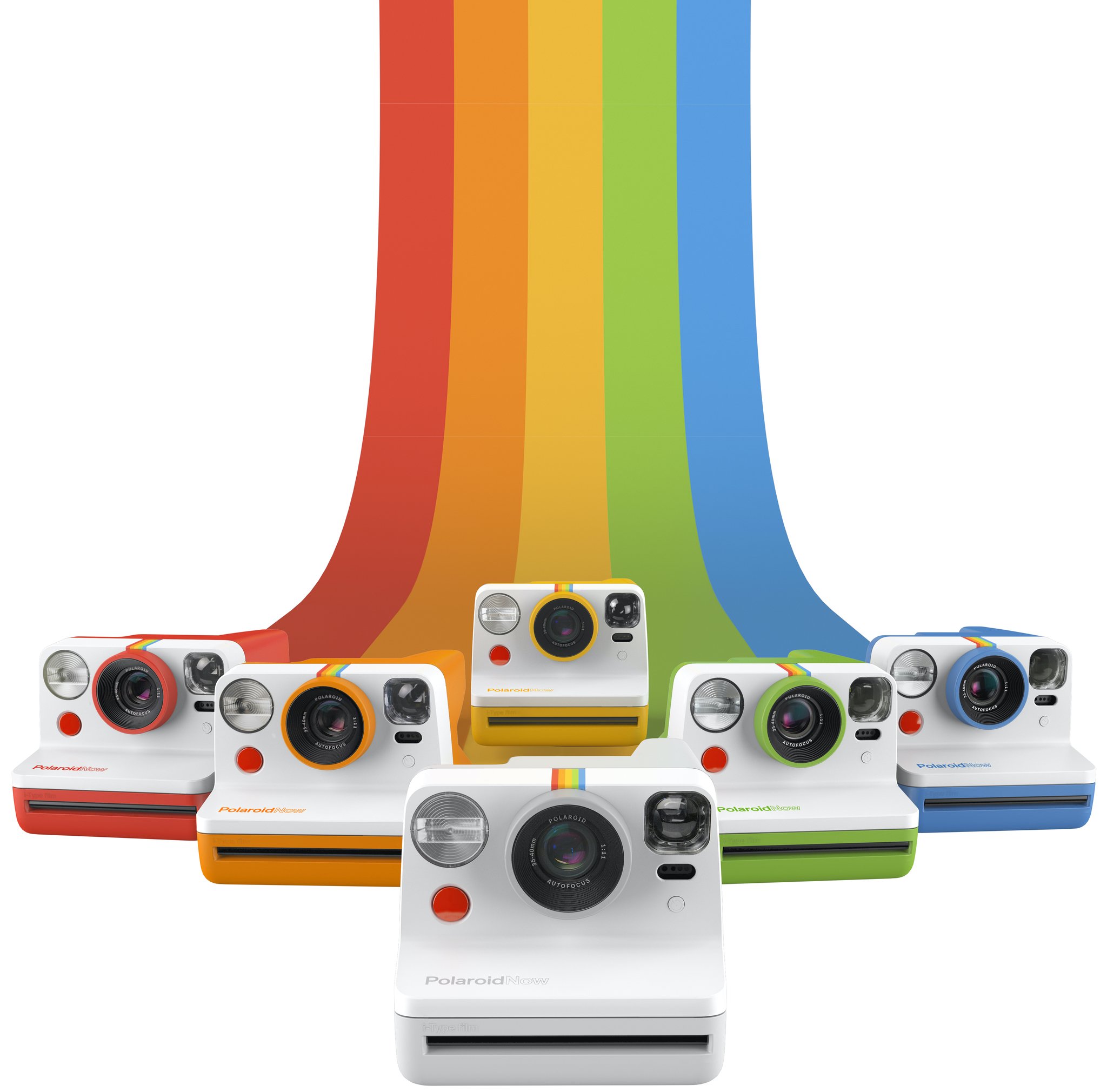
The old
The Polaroid Now, which lands in classic black and white, also embraces the company's five iconic rainbow colors. For a limited time, the camera is also available in red, orange, yellow, green, and blue. You'll even notice the familiar red shutter button on the front of the device.
The new
In a slight tweak, the Polaroid Now features curved, fluid lines that move away from the angular cases of previous models. The change makes the camera more comfortable to hold and use. In comparison with my Polaroid OneStep+, I found this claim to be correct, although only ever-so-slightly.
Beyond this, you'll notice a self-timer and double-exposure button on the front, and an all-new film counter LED on the backside. A flash on/off switch and battery level indicator is also present.
Different, but familiar design
Polaroid Now: What I like
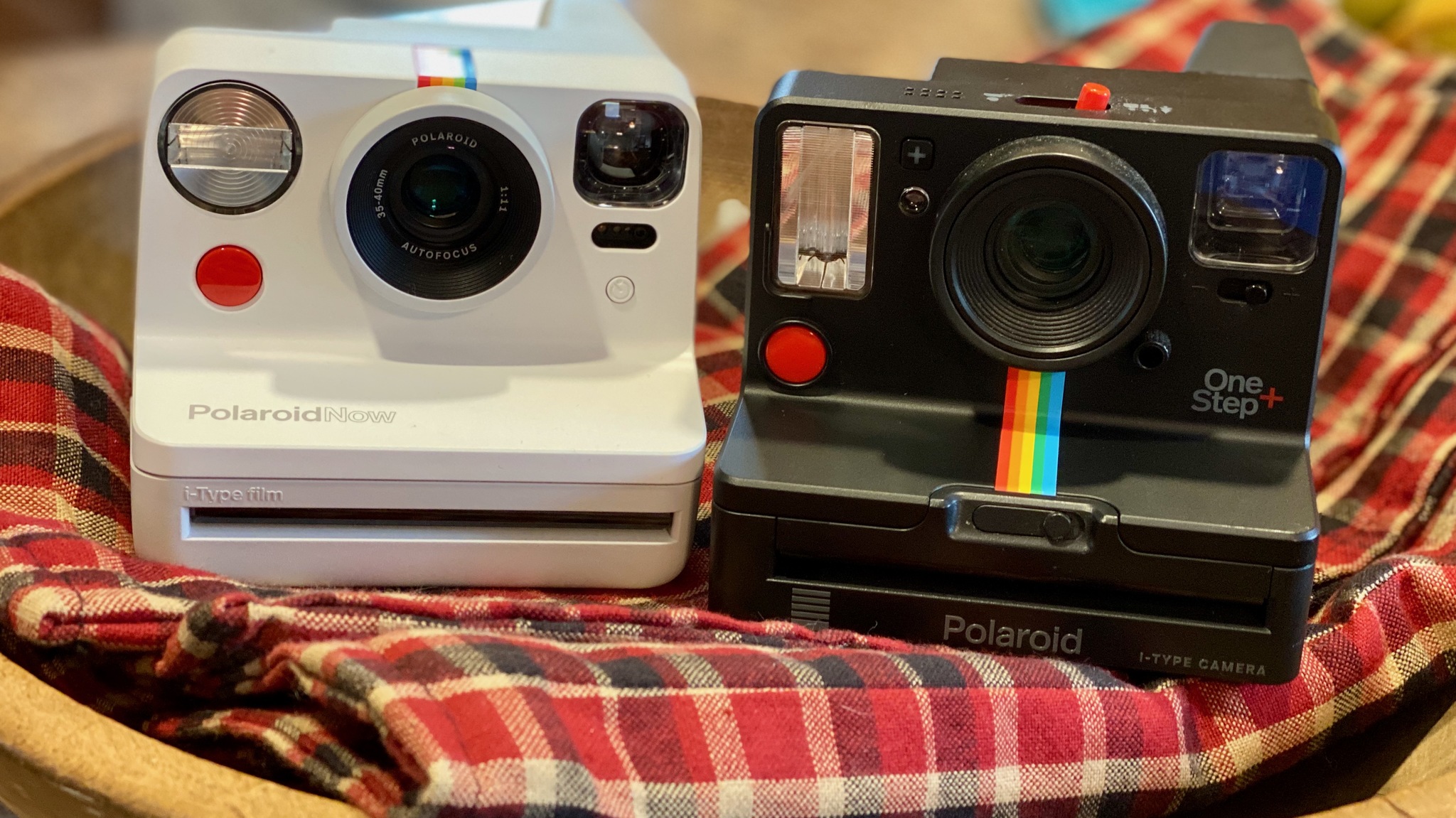
The Polaroid Now's design differences go beyond curves. From a look perspective, it's a fresher design, starting with the now-circular flash versus the vertical rectangular one found on the Polaroid OneStep+. And kudos to Polaroid for ditching the poorly conceived LED film counter used in previous cameras; the new numbered LED is much easier to read. The counter also sends out alerts when the camera battery needs to recharging and shows which exposure in a double exposure is being performed.
Polaroid has also redesigned the film door button, which is now on the side, not the front, of the device. Well done!
During my tests, I didn't get the chance to see whether the battery on my Polaroid Now lasted for 15 film packs as promised. However, I can report that the time it took to get a full charge was less than the two hours Polaroid noted, although this number will undoubtedly vary over time.
Autofocus Camera
The No. 1 reason to purchase the Polaroid Now is no doubt its new autofocus camera system, which automatically switches between distance and portrait formats. On the OneStep+, you must change between the two using a manual switch. The Polaroid Now is also noted for having a much-improved flash that takes into account lighting conditions. This feature works exceptionally well in low lighting situations.
Keep in mind, however, we're still talking about Polaroid here. By definition, Polaroid images are unique and imperfect and the autofocus camera system doesn't change this, and that's good!
On-board features

To create a double exposure on the Polaroid OneStep+ required a weird mix of commands performed on both the Polaroid app for iPhone and the camera. No longer. On the Polaroid Now, you simply press the self-timer button twice to enable the feature. You'll notice a flashing "1" on the countdown LED. After taking the first image, the display changes to a flashing "2." After making the second shot, the photo ejects as usual.
The self-timer feature is also user-friendly. After tapping on the self-timer button, the LED illuminates orange. After framing your photo, press the shutter button. The LED blinks to indicate the self-timer countdown. Nine seconds later, the camera snaps a picture automatically.
Easy, no?
Ordinary
Polaroid Now: What I don't like
Polaroid's decision to return to the original Polaroid name is a significant one that was only reinforced by the launch of the simple-to-use Polaroid Now. Devoid of smartphone interaction, the Polaroid Now harks back to earlier Polaroid cameras, and this is a good thing. And yet, I still wish the Polaroid Now supported Bluetooth (and hence the Polaroid app) because it's 2020, not 1970.
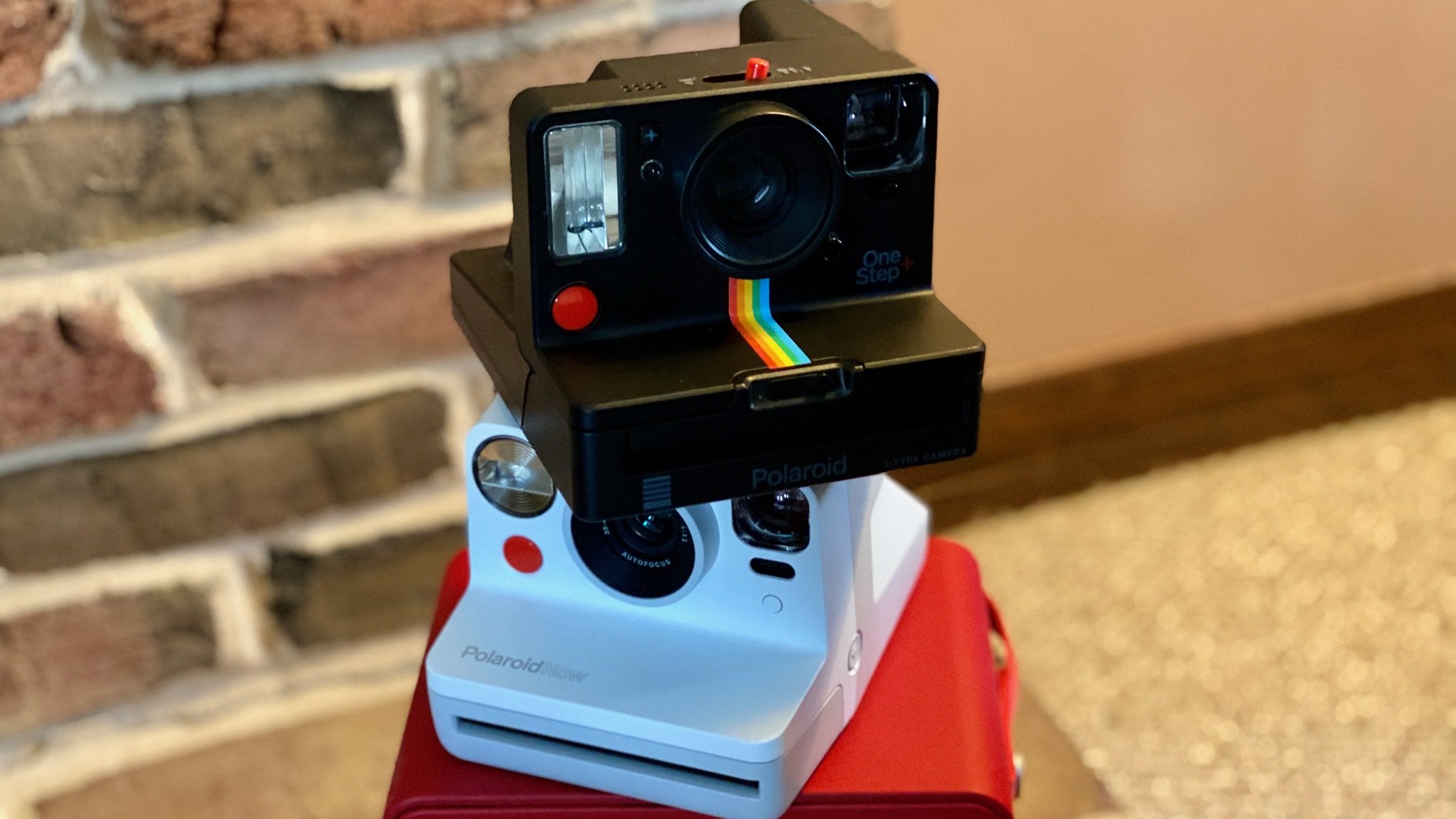
I'm probably in the minority as many of the app tools were perhaps seen as gimmicks. And besides, if you want those tools, the Polaroid OneStep+ remains on the market. My prediction: In 2021, Polaroid will reveal the Polaroid Now+, which combines the style of the newer model with the wireless capabilities of the more recent one.
One negative long associated with Polaroid is alive and well here. The i-Type Instant film that supports the Polaroid Now, like other Polaroid instant film, is expensive. The color i-Type film, for example, is around $2 per print. When you're spending that cash, check out the all-new Color Wave and Black Frame film.
You decide ...
Polaroid Now
The Polaroid Now does fewer things than its predecessor. Despite this, however, it's a better camera overall thanks to its autofocus camera, better battery life, and oh-so-good design. If you remember Polaroid from your youth or want to embrace the Polaroid instant camera process for the first time, this is the camera to get.
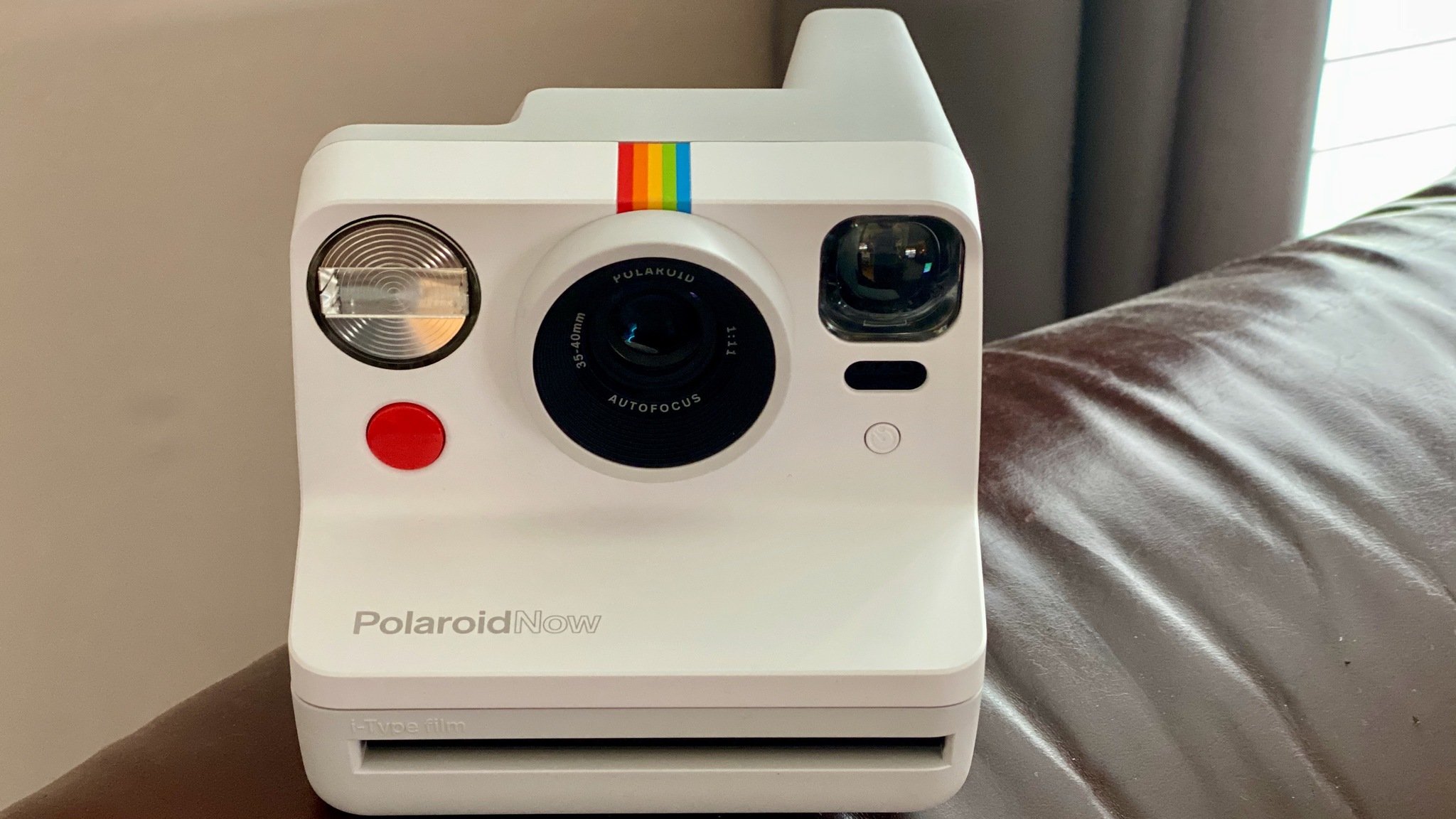

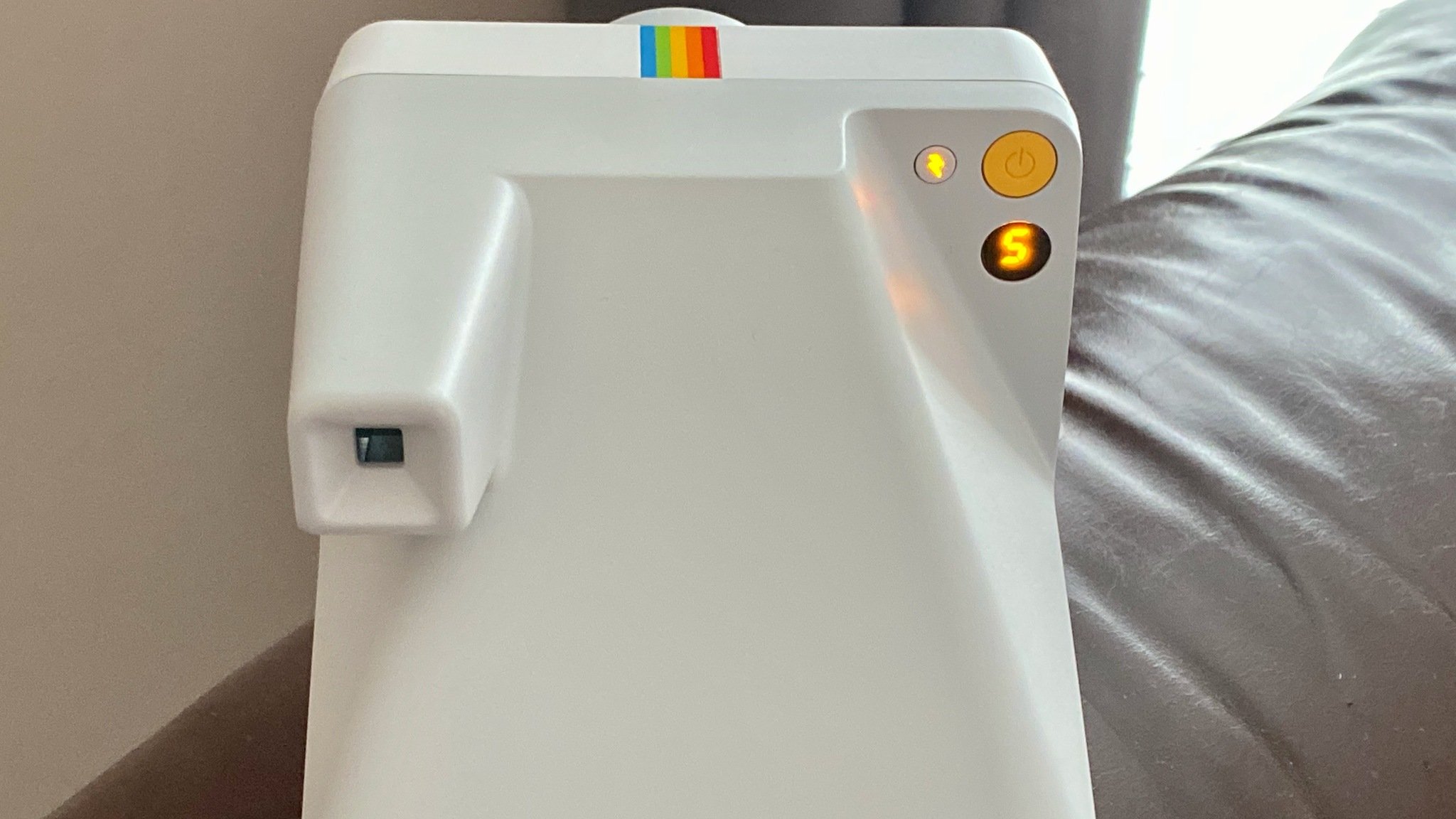

Have any questions?
If you have any questions or concerns about the PhoneSoap Pro or similar products, let us know below.

Bryan M. Wolfe has written about technology for over a decade on various websites, including TechRadar, AppAdvice, and many more. Before this, he worked in the technology field across different industries, including healthcare and education. He’s currently iMore’s lead on all things Mac and macOS, although he also loves covering iPhone, iPad, and Apple Watch. Bryan enjoys watching his favorite sports teams, traveling, and driving around his teenage daughter to her latest stage show, audition, or school event in his spare time. He also keeps busy walking his black and white cocker spaniel, Izzy, and trying new coffees and liquid grapes.

